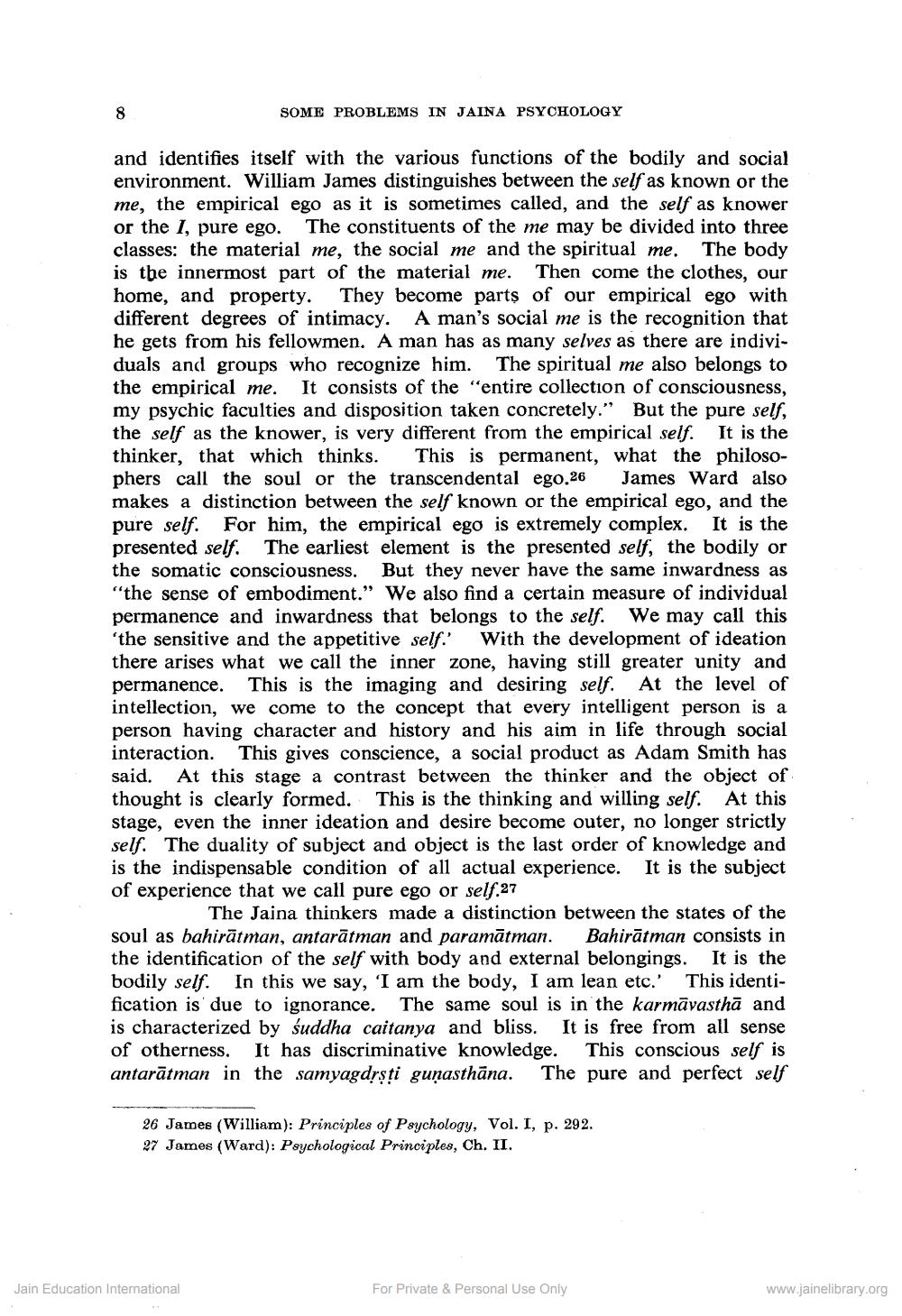________________
SOME PROBLEMS IN JAINA PSYCHOLOGY
and identifies itself with the various functions of the bodily and social environment. William James distinguishes between the self as known or the me, the empirical ego as it is sometimes called, and the self as knower or the I, pure ego. The constituents of the me may be divided into three classes: the material me, the social me and the spiritual me. The body is the innermost part of the material me. Then come the clothes, our home, and property. They become parts of our empirical ego with different degrees of intimacy. A man's social me is the recognition that he gets from his fellowmen. A man has as many selves as there are individuals and groups who recognize him. The spiritual me also belongs to the empirical me. It consists of the "entire collection of consciousness, my psychic faculties and disposition taken concretely." But the pure self, the self as the knower, is very different from the empirical self. It is the thinker, that which thinks. This is permanent, what the philosophers call the soul or the transcendental ego.26 James Ward also makes a distinction between the self known or the empirical ego, and the pure self. For him, the empirical ego is extremely complex. It is the presented self. The earliest element is the presented self, the bodily or the somatic consciousness. But they never have the same inwardness as "the sense of embodiment." We also find a certain measure of individual permanence and inwardness that belongs to the self. We may call this 'the sensitive and the appetitive self. With the development of ideation there arises what we call the inner zone, having still greater unity and permanence. This is the imaging and desiring self. At the level of intellection, we come to the concept that every intelligent person is a person having character and history and his aim in life through social interaction. This gives conscience, a social product as Adam Smith has said. At this stage a contrast between the thinker and the object of thought is clearly formed. This is the thinking and willing self. At this stage, even the inner ideation and desire become outer, no longer strictly self. The duality of subject and object is the last order of knowledge and is the indispensable condition of all actual experience. It is the subject of experience that we call pure ego or self.27
The Jaina thinkers made a distinction between the states of the soul as bahirātman, antarātman and paramātman. Bahirātman consists in the identification of the self with body and external belongings. It is the bodily self. In this we say, 'I am the body, I am lean etc.' This identification is due to ignorance. The same soul is in the karmāvasthā and is characterized by suddha caitanya and bliss. It is free from all sense of otherness. It has discriminative knowledge. This conscious self is antarātman in the samyagdrsti guṇasthāna. The pure and perfect self
26 James (William): Principles of Psychology, Vol. I, p. 292. 27 James (Ward): Psychological Principles, Ch. II.
Jain Education International
For Private & Personal Use Only
www.jainelibrary.org




